
Retro capsule hotel in Tokyo gets contemporary makeover by Schemata Architects
Jo Nagasaka's architecture studio has overhauled a capsule hotel in Tokyo, pairing old sleeping cabins with a suite of timber-lined saunas.
Schemata Architects changed everything inside the eight-storey Shibuya hotel, except the capsules themselves. The result is an interior that combines contemporary, pared-back finishes with retro details.
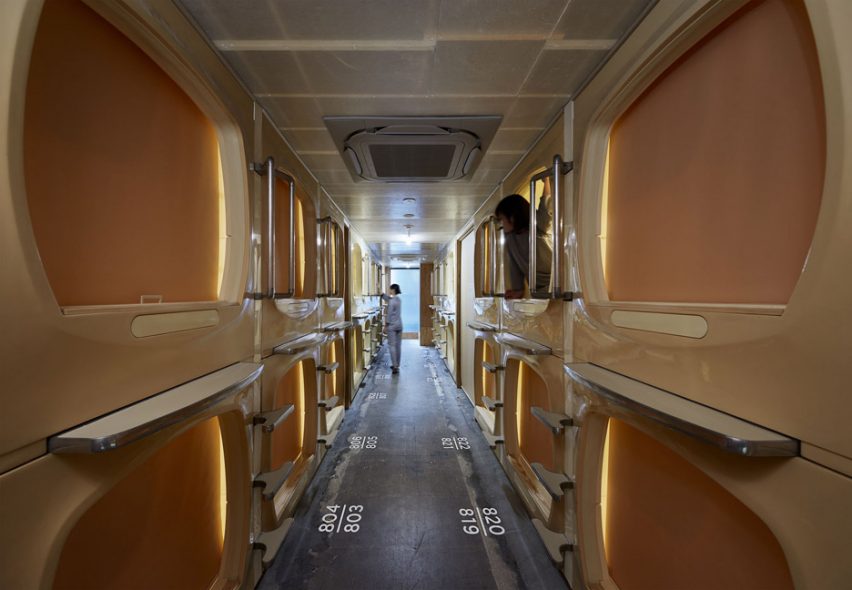
The project was commissioned by Nine Hours, a hotel brand that has opened a number of new capsule hotels in Japan, in a bid to reinvent the typology for the 21st century. So far the brand has only built new hotels, and this is its first renovation project.
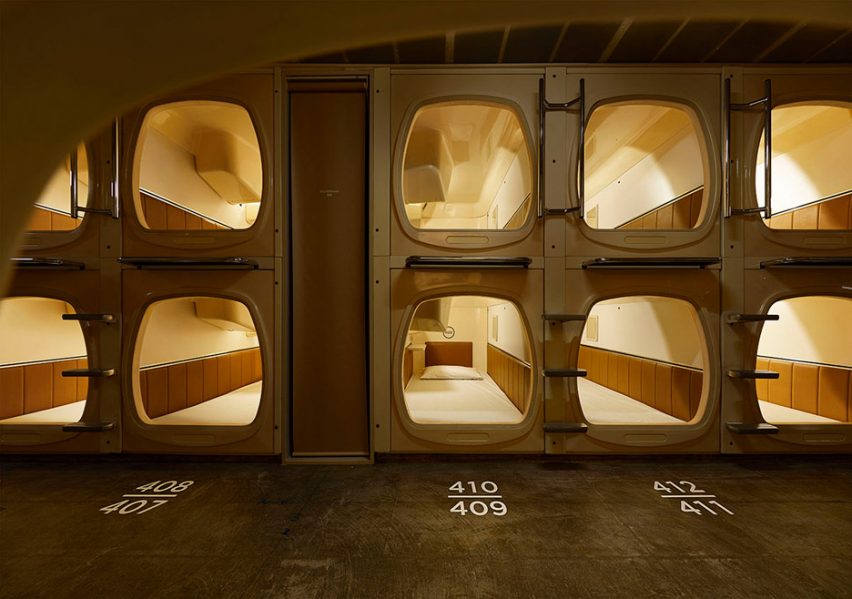
The challenge for the Schemata team was to create an interior that fitted the brand image – something that was much harder to achieve in a renovation than a new-build.
They did it by applying colours and materials that they felt would complement the old capsules as much as possible, including a dark screed floor, plywood cabinetry, FRP plastic and plain furnishings.
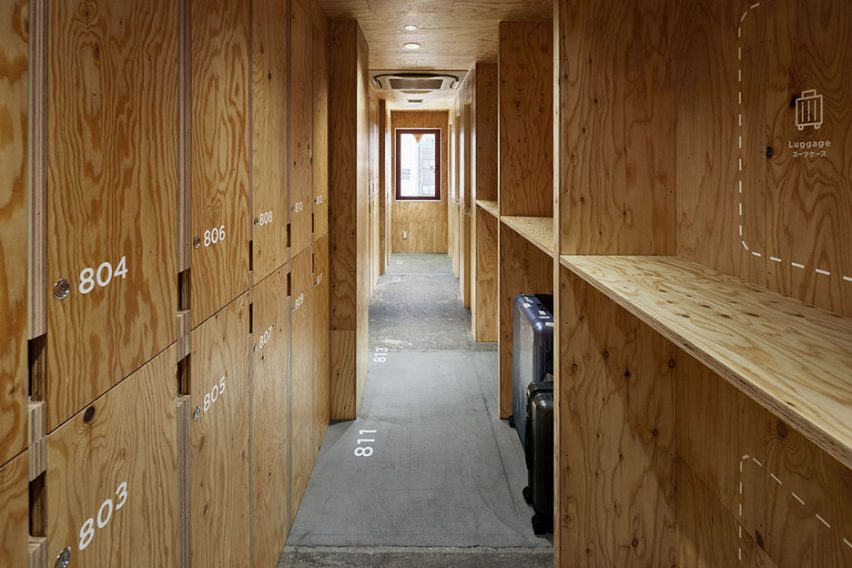
"Our design aims to eradicate the image of the old capsule hotel by changing the interior and surroundings while keeping the existing capsules as they are," they explained.
"The colour of the existing capsules – an old-fashioned beige reminiscent of the retro design period – was rather difficult to handle, but we intentionally used it as a base colour for the interior to eradicate the impression of the existing capsules."
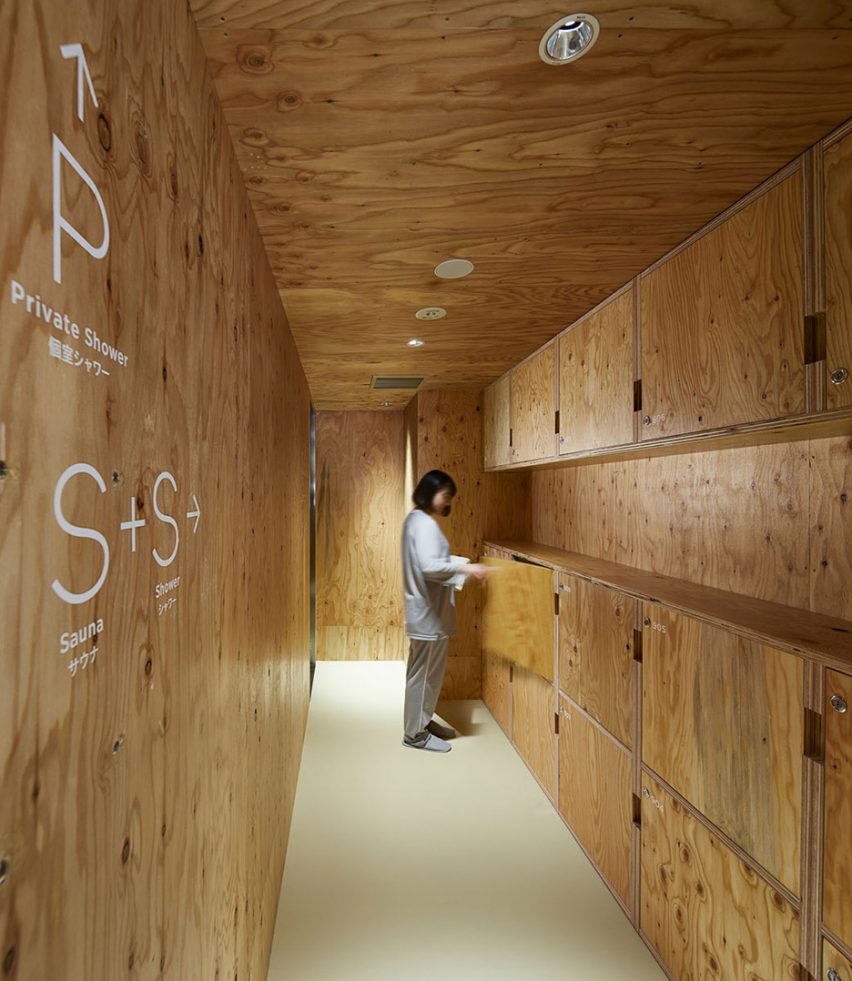
The biggest change to the interior is the addition of saunas on first and seventh floors – hence the hotel name ℃, or Do-C.
According to Schemata, the aim is to play up the stereotype that old capsule hotels look like saunas.
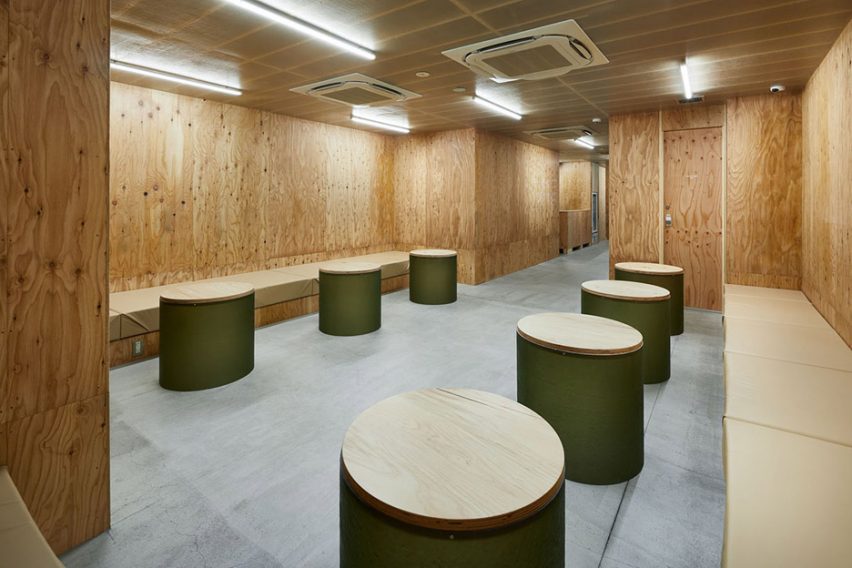
"In Japan, people often stereotypically associate capsule hotels with saunas due to the conventional style of capsule hotels in the past," said the architects.
"The existing building was actually not equipped with saunas, but we intentionally recreated the stereotypical image by adding saunas there, while eradicating the conventional impression, to establish a powerful combination of capsules and saunas representing the identity of ℃."
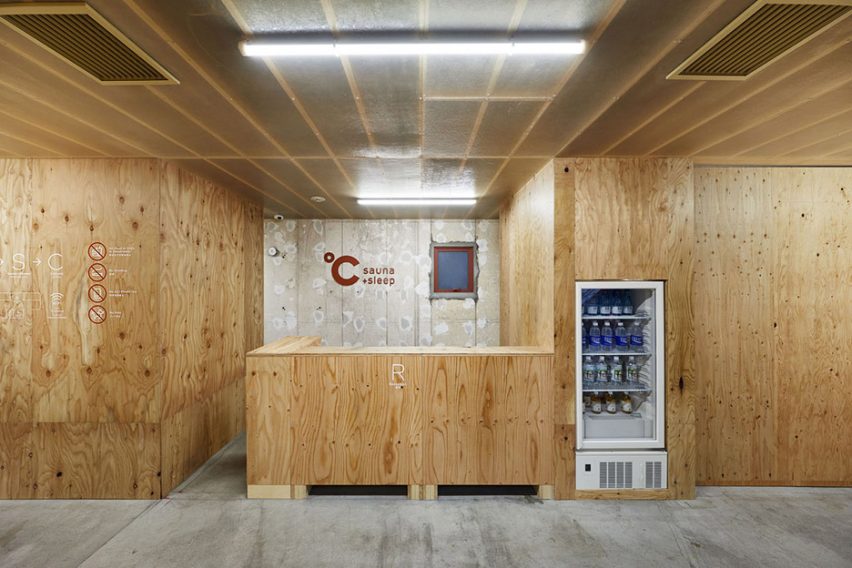
Capsule hotels become a cultural phenomenon in Japan after the first one opened in Osaka in the late 1970s.
Traditionally, capsules were made from modular plastic or fibreglass, and were designed to offer a cheaper option to those that couldn't afford traditional hotels. But they became increasingly popular, prompting a number of more high-end versions to open.
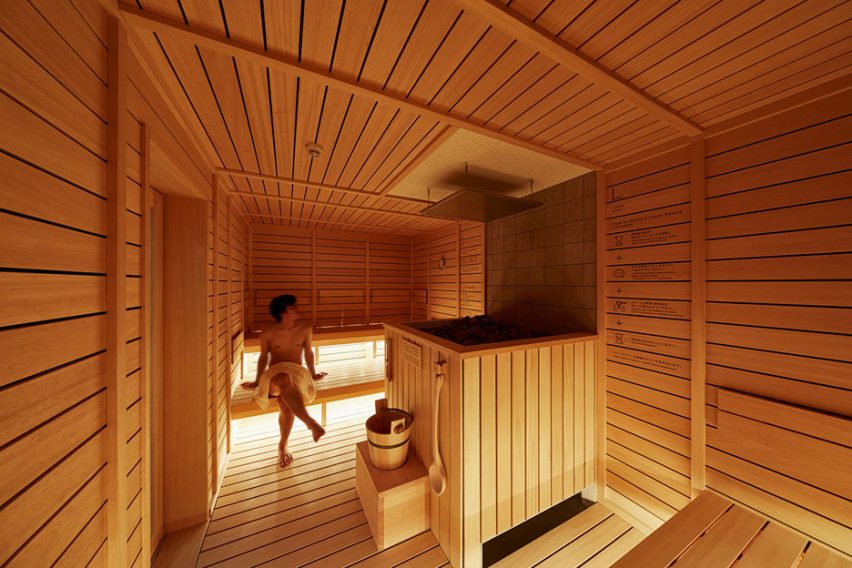
Nine Hours describes itself as "a tool designed to offer more freedom to our guests from around the world".
It offers stays for as little as an hour at a time and allows guests to check in at any time of day.
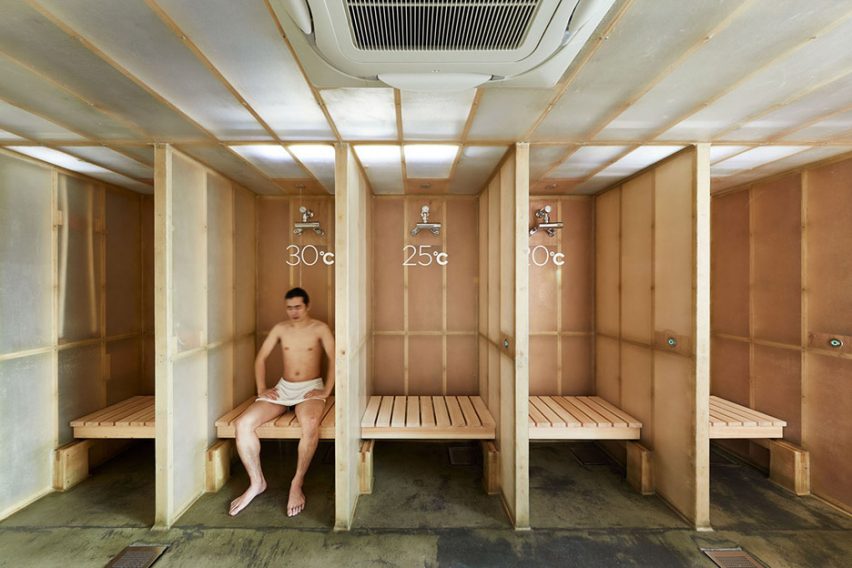
Do-C is one of the very few hotel projects that Schemata Architects has worked on, along with the temporary Happa Hotel it completed in 2009.
The studio, which was founded by architect Jo Nagasaka in 1998, more often works on residential and retail projects, with recent examples being a Blue Bottle coffee shop and a Jins eyewear store.
Photography is by Nacása & Partners Inc.
Project credits:
Architects:Jo Nagasaka/Schemata Architects
Project team:Ryosuke Yamamoto, Matthieu Darcourt
Construction:ZYCC CORPORATION, Thermarivm, DAIDOPolymer, Okamura CORPORATION, Kotobuki Seating Co
Collaboration:Hiromura Design Office, Design Studio S